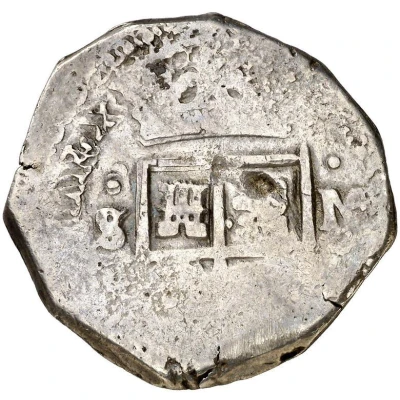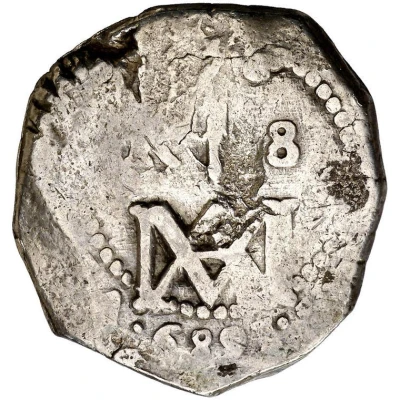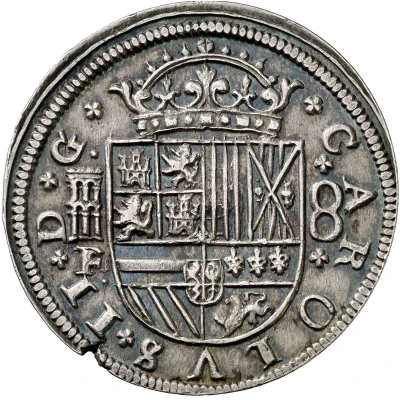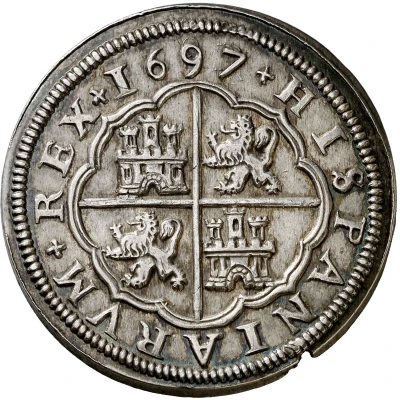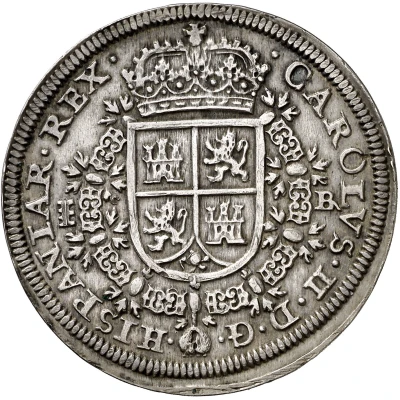
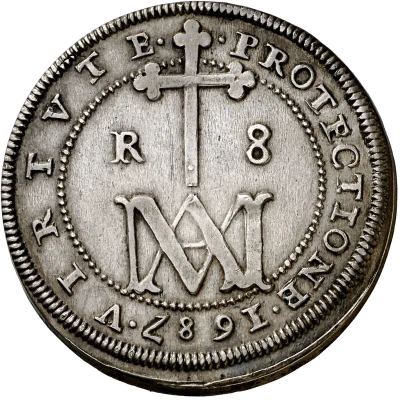

© Aureo & Calicó S.L., subastas numismáticas
8 Reales "Maria" - Charles II milled
| Silver (.931) | 22 g | 40 mm |
| Issuer | Spain |
|---|---|
| King | Charles II (1665-1700) |
| Type | Standard circulation coin |
| Years | 1687-1691 |
| Value | 8 Reales |
| Currency | Real (1497-1833) |
| Composition | Silver (.931) |
| Weight | 22 g |
| Diameter | 40 mm |
| Thickness | 2 mm |
| Shape | Round |
| Technique | Roller milled |
| Demonetized | Yes |
| Updated | 2024-10-07 |
| Numista | N#84452 |
|---|---|
| Rarity index | 94% |
Reverse
"MA" monogram below cross
Script: Latin
Lettering:
R 8
VIRTVTE PROTECTIONE
• 1691 •
Engraver: Bernardo Pedrera Negrete
Edge
Reeded
Comment
This Spanish equivalent of a peso was struck in 1687 during the reign of king Charles II. This type was struck 1687 and 1691 only and is very scarce. This well struck, nicely centered coin may be contrasted with the crude cobs being minted at the Latin American mints, where screw presses were not installed until the 18th century.This strange coin, according to the study published by Casto Rivero in 1928, was produced to warn against the danger of counterfeiting. Its weight was raised from 84 to 67 reales to the mark and its characteristics consisted of the arms of Spain with the Order of the Golden Fleece around and the monogram of "MA" with a cross, whence came the coin's nickname of "Marieta", with the legend "Protect [my] Virtue". This cry of anguish is found on coins of other nations issued in periods of national crisis. http://www.coinfactswiki.com/wiki/Spain_1687-Seg_BR_8_reales
KM#210.1 Madrid see KM#41
KM#210.2 Segovia mintmark aqueduct
Interesting fact
The 8 Reales "Maria" coin from Spain, minted between 1687 and 1691, features an interesting error on some of the coins. The coin was meant to have the name "Carolus" (Latin for Charles) inscribed on it, referring to King Charles II. However, due to a mistake by the engraver, some coins were minted with the name "Maria" instead, which is the name of the king's wife, Maria Anna of Neuburg. This error has become known as the "Maria Error" and makes those coins particularly valuable to collectors.
